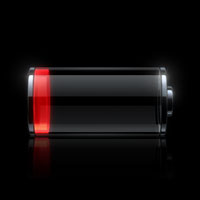The secret behind poor smartphone battery life


Rapidly deteriorating battery life has long been tolerated by smartphone owners, mainly because they have no choice. Phones usually meet the holy grail of battery life, the ability to last all day, at first. Then it starts getting worse quickly, until many phone owners end up plugging in during the day. It seems it's always been this way, and there's no incentive to the smartphone makers to make this better.
Battery has long been the focus of the mobile segment. In the early days of mobile the possible time away from a power outlet was not very long. This prompted OEMs to do what they could to make batteries in mobile devices last longer.
This is why we now have decent battery life with most laptops and tablets. The eight hours needed to go all day no matter what comes up is now met by many mobile devices. Except the smartphone.
Pick any smartphone in the top ranks and talk to those who've owned one for a while. Odds are, you'll hear a familiar tale — the phone easily lasted all day when new but that didn't last. If they've owned the phone over a year you'll probably hear about the antics they go through daily to have a phone that is still working at day's end.
See related: Falling tablet sales: The problem is they're just too good | Necessary battery life for laptops: 8 hours
So why hasn't smartphone battery life improved like that on tablets and laptops? I believe the reason is obvious — there is no incentive for OEMs to improve this. In fact, there's an incentive to keep things the way they've always been.
In a recent article I explained that tablet owners aren't upgrading because current devices are good enough. There's no compelling reason for tablet owners to get the latest and greatest because the one they have is good enough.
Special Feature
Good battery life is a big part of that satisfaction with tablets. Most of the top tablets get 10+ hours of battery life, and that's enough for just about everyone. Even over time when those tablet batteries start deteriorating, resulting in shorter battery life, they still last all day given the long life they start with when new.
With smartphones it's a different story. Many are on the edge of all-day battery life to start, and they fall short as the battery ages. This is common. Take a stroll around the web and you'll find hundreds of articles with tips for "how to extend the battery on gadget X". Owners are trying to get through the day with a smartphone that's only a year old, and they'll do anything to make that happen.
That includes trading in that phone when their US contract is up. I believe it's not just a hankering for the latest shiny smartphone available, it's also to get rid of their old one. They know from experience that their battery life issue will go away with a new phone, due to that new battery inside.
This is why there is no incentive for smartphone makers to come up with a new battery technology with the same improvements we've seen in laptops and tablets. They need that two-year replacement cycle the phone contracts push, and the dying battery syndrome fuels that upgrade process.
I'm not suggesting there's some hidden conspiracy behind the smartphone battery situation. I am pointing out that from a business perspective there is no incentive for smartphone makers to improve battery life as they have on other mobile devices. They are happy when you trade that phone in for a new one. They just hope you don't figure out what they are doing. If something's not broken, why fix it?
See related:
- Necessary battery life for laptops: 8 hours
- Hands on with the Yoga 2 Pro: Windows 8 any way you like it
- Windows 8.1: Makes the ThinkPad Tablet 2 even better
- ThinkPad Tablet 2: Best Windows tablet
- Acer W3 8-inch Windows 8 tablet: First impressions
- Windows 8 tablets: A confusing world for buyers
- Epiphany: Windows 8 is a very good tablet OS
- 10 advantages Windows 8 tablets have over the iPad and Android
- 10 disadvantages Windows 8 tablets have compared to the iPad and Android